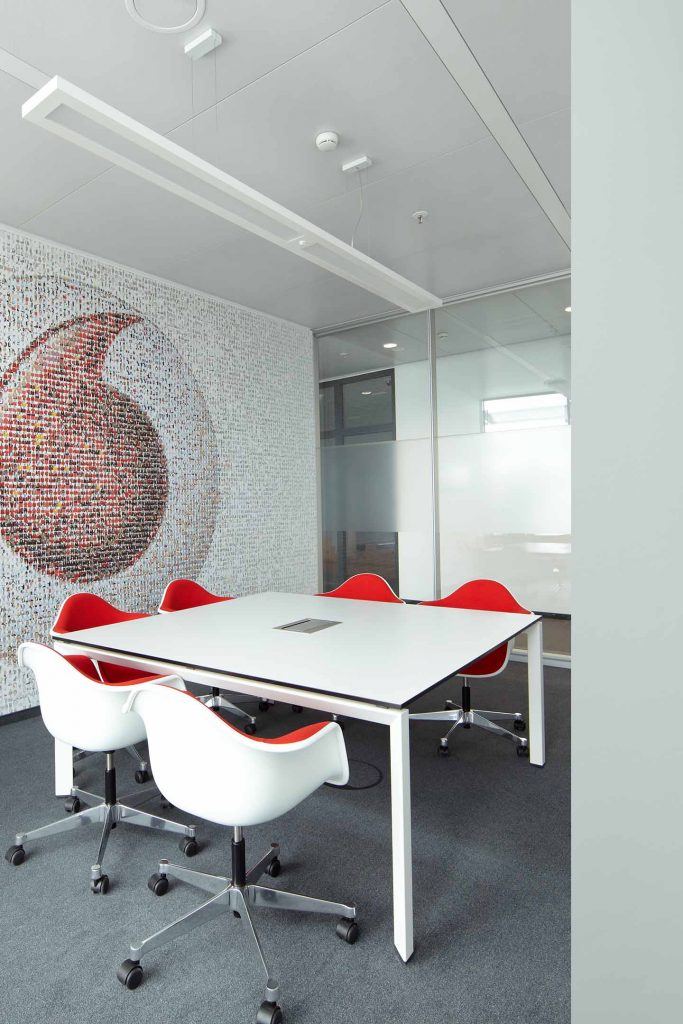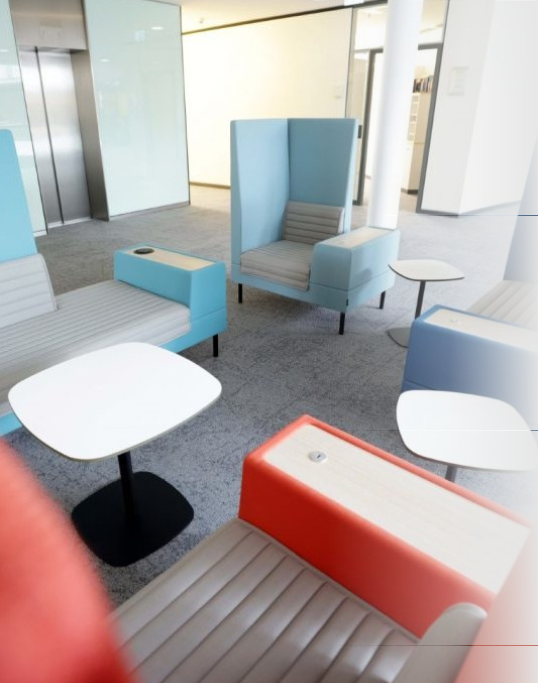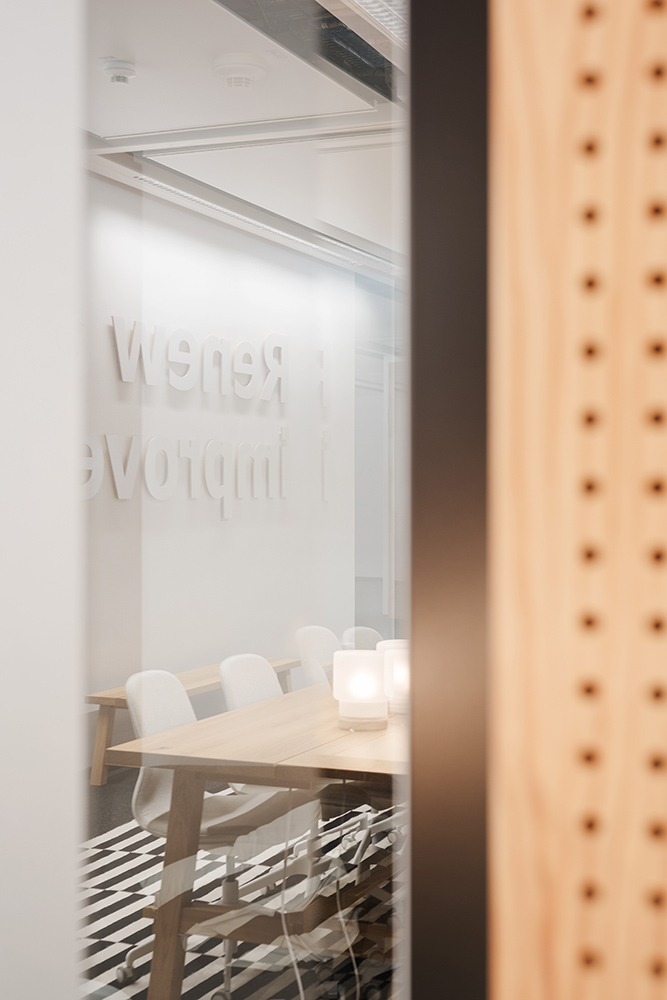
Multispace concept with exemplary character
Hamburg
Location
100
Employees
2023
Project period
2.000 m²
GFA
The Multispace concept, which was introduced in June 2021 in Office 4 of the Hamburg Finance Authority (FB4) in Caffamacherreihe, is a role model. It is a forward-looking space and room concept that sets high standards in terms of functionality and flexibility and thus plays a pioneering role in Hamburg's administration.
With this in mind, the project managers at Office 4 of the Ministry of Finance announced a later evaluation of the new office space during the planning phase, which combine was commissioned to implement in mid-2023. The result confirms the success of the pilot project and shows how authorities can successfully implement New Work concepts.
The multispace concept is based on activity-based working and desk sharing and was designed and implemented by the planning office Seel Bobsin Partner.
combine had already carried out a requirements and building analysis for the introduction of the new space concept in 2020. This formed the basis for occupancy planning and the design of the new working environments.

Our mission: Evaluation of the space and collaboration
The aim of the evaluation carried out in the 2nd and 3rd quarters of 2023 was to identify the strengths and optimization potential of the premises and collaboration in line with the pilot character of the Multispace. Based on the findings, combine derived improvement measures in the form of recommendations for action in order to further increase employee acceptance.
The evaluation comprised an online survey in which 70% of the almost 100 employees took part, as well as a subsequent focus workshop with 13 participants to consolidate and validate the results.



Evaluation@combine: A three-dimensional view
The evaluation of the FB4 multispace concept took three dimensions into account:
1. behavior: rules of conduct in the multispace and the common understanding of (collaborative) work
2. bricks: diversity of space modules to create different work opportunities
3. bytes: technical infrastructure, equipment and furnishings

The evaluation result: very positive
The results of the survey and their validation in the subsequent workshop already show a high level of employee satisfaction with the premises and the organizational culture. The modern premises and the “Duz” culture are already characterized by cooperation at eye level, active employee participation and openness to change.
The very pleasing results confirm the success of the pilot project and present the modern modular concept as a pioneer within the Free and Hanseatic City of Hamburg and in the entire public authority landscape.


Assessment of the results and recommendations for action
At a detailed level, the evaluation results reveal concrete successes in the conversion and room furnishing measures as well as in the accompanying cultural change process.
At the same time, the results highlight the need for action, which has also developed as a result of the experience gained during the coronavirus pandemic. combine was able to derive specific recommendations for action for the three dimensions under consideration from the insights gained, which were accepted and implemented by the project managers at Office 4 of the finance authority.
An insight:
Behavior: More exchange in the new Multispace concept
The results show: The multispace concept is culturally successful. Employees describe their collaboration as respectful, open and considerate. In addition, the evaluation reveals a very positive development: those surveyed observed an intensification of cross-departmental exchange as a result of the spatial changes.
At the same time, two needs were identified: In the often busy and hectic working day, employees would like to see better separation from rest and breaks, as well as the opportunity for more movement and joint team activities.
In order to meet the desire for peace and quiet and undisturbed breaks, combine worked with employees to submit proposals to the FB4 project management for improved use of the kitchen and community spaces during break times.
In addition, combine was also able to develop recommendations on how the two needs could be better met with minor changes to the space.


Pictures: Tax authority | Karsten Knocke
Bricks & Bytes
Bricks: “Library” with lounge charts and table tennis in the meeting room
Overall, employees rate the variety and design of the room modules very positively. However, while individual module types such as the think tanks are actively used, especially for digital meetings, and in some cases there is even additional demand, other modules are now only used sporadically in everyday working life a good three years after planning. This is particularly true of the library, which is designed for working in silence. Its concept was therefore further developed in the course of the evaluation. The basic concept of a quiet place was retained in line with the employees' desire for opportunities to relax. However, the atmosphere of the room was upgraded and a cozy lounge atmosphere was created, which invites informal exchange and relaxation.
The desire for exercise was also met by setting up a room with specially equipped workstations, where additional exercise elements (including a treadmill and bicycle) make it possible to work more actively.
Bytes: Hybridity as the new standard
Finally, the disruptive changes in the world of work as a result of the coronavirus pandemic are most evident in the technical infrastructure: the need for hybrid equipment elements has increased significantly in order to optimally support the given workflows. Accordingly, combine evaluated the frequency and type of use as well as the technical equipment for the individual (meeting) rooms. This made it possible to derive recommendations for retrofitting the rooms with hybrid meeting technology. These requirements have already been addressed by the project managers by equipping several meeting rooms with flexible, hybrid technology.



